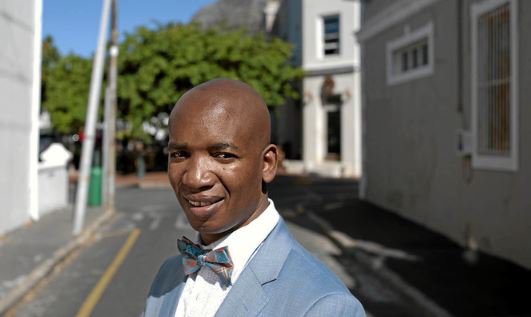
Once a teacher in Zimbabwe, Godfrey Madanhire moved to South Africa 18 years ago with the hope of continuing in the profession, but he says xenophobia served as a barrier between him and that dream.
Madanhire saw an opportunity in the problem, and improvised by taking the readily available insurance job, going on to build a career as a multifaceted entrepreneur and life coach.
Now in the business of changing people’s lives through motivational speaking, Madanhire has put pen to paper on rising above xenophobia and surviving xenophobic tendencies in South Africa.
In this interview with TheCable Lifestyle, Madanhire talks about his book, ‘The Passport: Letters and Poems’ as well as his personal experience with xenophobia.
Can you tell us about your book, The Passport: Letters and Poems?
In 2000 I was a young man looking for an opportunity to help my family in Zimbabwe. Only armed with my passport in my pocket I dove straight into the deep end, it was overwhelming. It’s an experience I will never forget, all the challenges and stereotyping I had to overcome just to get started. It’s these moments that I decided to write down and publish in The Passport.
Your book focuses on the issue of xenophobia and you are a Zimbabwean migrant living and working in South Africa. How did your life story inspire this book?
When I arrived in South Africa I was a qualified teacher. I wanted to carry on this profession, but there were no positions available for me. So, I decided to take the first opportunity that came my way, which was a job as a door-to-door insurance salesperson.
It’s during this time of experiencing face-to-face interaction with the general public that I was confronted with xenophobic issues. Rather than let it weigh me down, I decided to rise above it and push on through. Eventually, my hard work paid off and I was offered a position as a manager, which eventually led to me starting my own company.
The idea of a book of poems and letters is quite unusual and very interesting. What inspired you to write your book in this style?
When I reflect back on my experiences, they come back to me in short bursts, so sharing them in these segments was a natural choice. Capturing these complex emotional moments is difficult and requires creating content that is layered. This allows the reader to dissect as well as analyse these situations.
Who are the letters in this book addressed to?
To those looking for acceptance and a new place to call home.
Why are they addressed to this group?
In our world, they’re often the victims, treated like outcasts, they feel unwelcome, and are constantly sidelined. They need the motivation to push through, so I decided to share how I overcame the issues.
The Passport: Letters and Poems was first published in 2014. Between now and 2014, do you think there has been any change with regards to the issue of xenophobia?
Xenophobia in South Africa has been an issue that’s made international news since 2008 – which is 10 years. I published my book as a way to educate and enlighten individuals on the fact that these victims are humans with emotions and dreams. Since then the major change has been that xenophobic fears are now a truly international issue with right winged governments forcing stricter immigration laws.
You are creating a showcase, an educational experience based on this book. Can you tell us more about this showcase?
In our current world, we need more opportunities to celebrate our diversity, find artistic ways of connecting, and to educate those with xenophobic fears that there is no need to worry about the introduction of a new culture.
With The Passport Showcase, we want to show-off talent from across the continent and educate individuals that these differences are beautiful and need to be accepted with open arms.
END

Be the first to comment